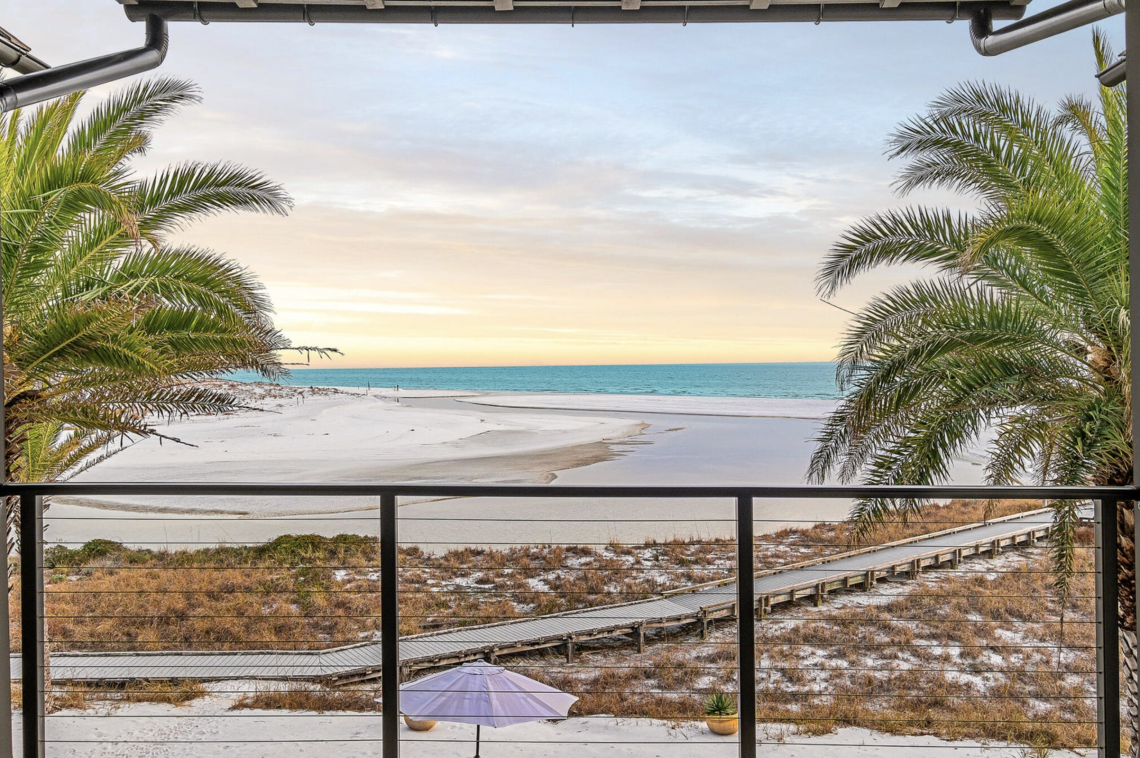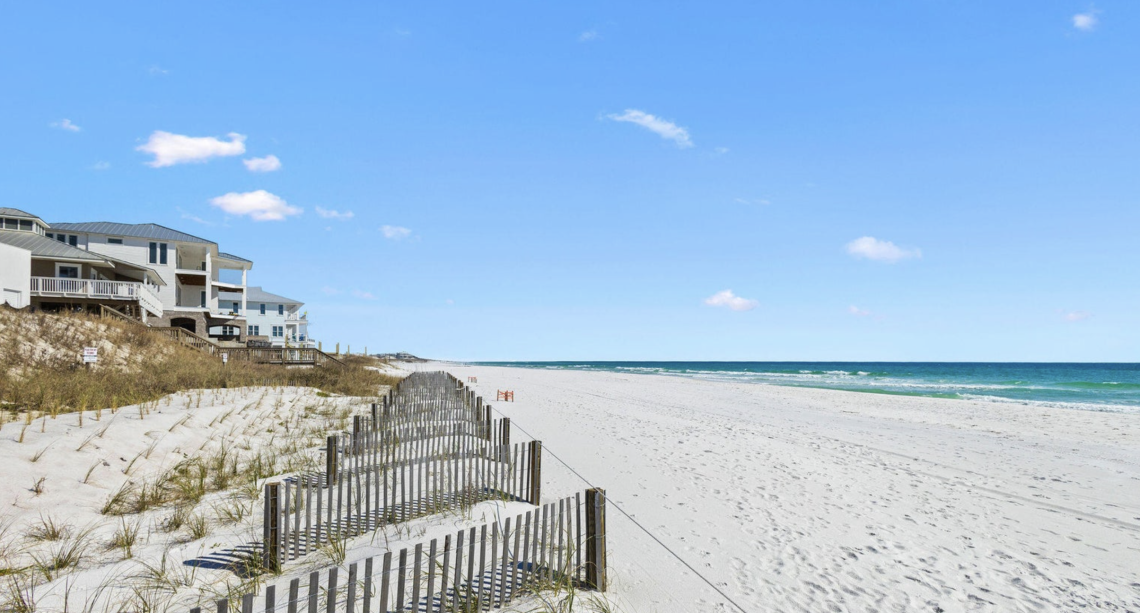A New Chapter for 30A Beaches: HB 6043 Explained
Imagine a world where your next beach day comes with a little less worry: no more eye-crossing legal fine print, no more phone calls to the county sheriff asking “Am I trespassing if I set up my umbrella here?” That’s the promise of HB 6043, which Florida’s legislature recently passed. In a nutshell, this bill repeals the 2018 statute (Section 163.035 of the Florida Statutes) that forced every county or city to haul custom-loving locals into court before they could formally recognize long-standing, recreational use of the dry-sand beach above the mean high-water line.
Why Did We Have to Go to Court in the First Place?
Florida’s Constitution already blessed us with the Public Trust Doctrine: the sovereign state holds all Gulf beaches below the high-water line in trust for everyone—so you’ve always had the right to wander up to where the wet sand leaves off, but what about the dry-sand zone—the “recreational adjunct” where families picnic, volleyball games happen, and kids hunt for shells? English-style “recreational customary use” has long protected that area under background common law, but back in 2018, Tallahassee worried about a hodgepodge of local beach ordinances and endless lawsuits. The result: no local rule could find or declare custom-use rights unless a circuit court first signed off on it—complete with formal notices, petitions, and 45-day intervention windows for beachfront landowners. Read, "huge hurdles and legal red tape."

HB 6043’s Simple—but Big—Fix
Repeal the Court-Gate: HB 6043 wipes out Section 163.035, so counties and cities can once again adopt or maintain a “customary use” ordinance by majority vote—no judge required.
Immediate Effect: Once signed by the Governor, any new (or existing) ordinance goes live the moment it’s passed—no 60-day complaint, no extra legal steps.
Real-World Impact on 30A
Walton County’s Head Start:
In 2016, Walton County passed an ordinance codifying recreational customary use to defuse clashes between beachgoers and private landowners. Under the old statute, that ordinance’s authority always hung on a courtroom ruling—now it stands on its own legs.
Clear, Consistent Access
Beachgoers get certainty: county maps, signs, or websites can point out exactly where public access begins and ends.
Property Owners gain peace of mind: no surprise trespass calls or ad-hoc disputes over where someone’s beach towel sits.
Positive Impact on the 30A Real Estate Market
HB 6043 doesn’t just benefit beachgoers—it can give our local real estate market an extra boost:
Stronger Property Appeal: Clear, county‑enforced beach access makes homes without private boardwalks or deeded easements far more attractive to buyers and vacation‑rental investors.
Higher Rental Income Potential: Vacation properties that can easily direct guests to public crossovers often command better nightly rates and higher occupancy—tranquil access sells.
Community Confidence: When buyers know that Walton County stands firmly behind public beach access, overall consumer confidence rises—encouraging both local moves and out‑of‑state investments in 30A real estate.
By reinforcing public‑access ordinances without expensive court battles, HB 6043 makes every stretch of 30A’s coastline a more stable, marketable asset.
What It Means for Owners & Guests Without Private Beach Paths
Along 30A, many cottages, condos, and vacation rentals don’t have a deeded boardwalk or private path down to the sand. If Walton County fully embraces HB 6043:
More and Better Public Crossovers: Elected leaders may be motivated to invest in—and clearly label—public beach walkovers, making it easier for renters and neighbors alike to find a legally protected way down to the dunes.
Enhanced Guest Experience: Vacation-rental owners and hosts can point guests to well-marked, county-sanctioned access points—no guesswork, no risk of getting caught on private stretches of sand.
Boost to Local Economy: When visitors feel confident about where they can set up beach chairs, they’re more likely to spend time (and money) at nearby cafés, shops, and water-sport rentals.

What’s Next—and How You Can Be Part of It
Watch the Walton County Commission Agenda
Keep an eye on meeting notices for “customary use” or “beach access” items. Public hearings are your chance to ask questions, offer support, or suggest enhancements—like adding more crossovers or interpretive signage.
Speak Up for Clarity
Let your neighbors, STR hosts, and local businesses know that a single, county-wide definition of “customary use” makes life simpler for everyone: guests, owners, and law enforcement alike.
Encourage Community-Led Improvements
Suggest that Walton County explore beach ambassador programs or volunteer initiatives to help visitors learn the ropes, keep paths clear, and even collect dune-friendly trash. When people feel ownership, they protect our coastline.
Share the News
Post in neighborhood Facebook groups or Nextdoor, and let fellow beach lovers know that HB 6043 has cleared the way for safer, sunnier, more certain days on 30A’s dry-sand playground.
Bottom line
HB 6043 strips away a legal speed bump and hands Walton County back the power to confidently—and swiftly—protect public enjoyment of our beloved beaches. If you value setting up under the 30A sun without a second thought about trespassing, now’s the time to engage with your county leaders. Together, we can ensure every stretch of dry sand along 30A is open, accessible, and welcoming to all—no courtroom required.
Ready to Make Your Beach Dreams a Reality?
Schedule a Call Today.
We're here to offer guidance and expertise leading you to achieving your goals on 30A!




